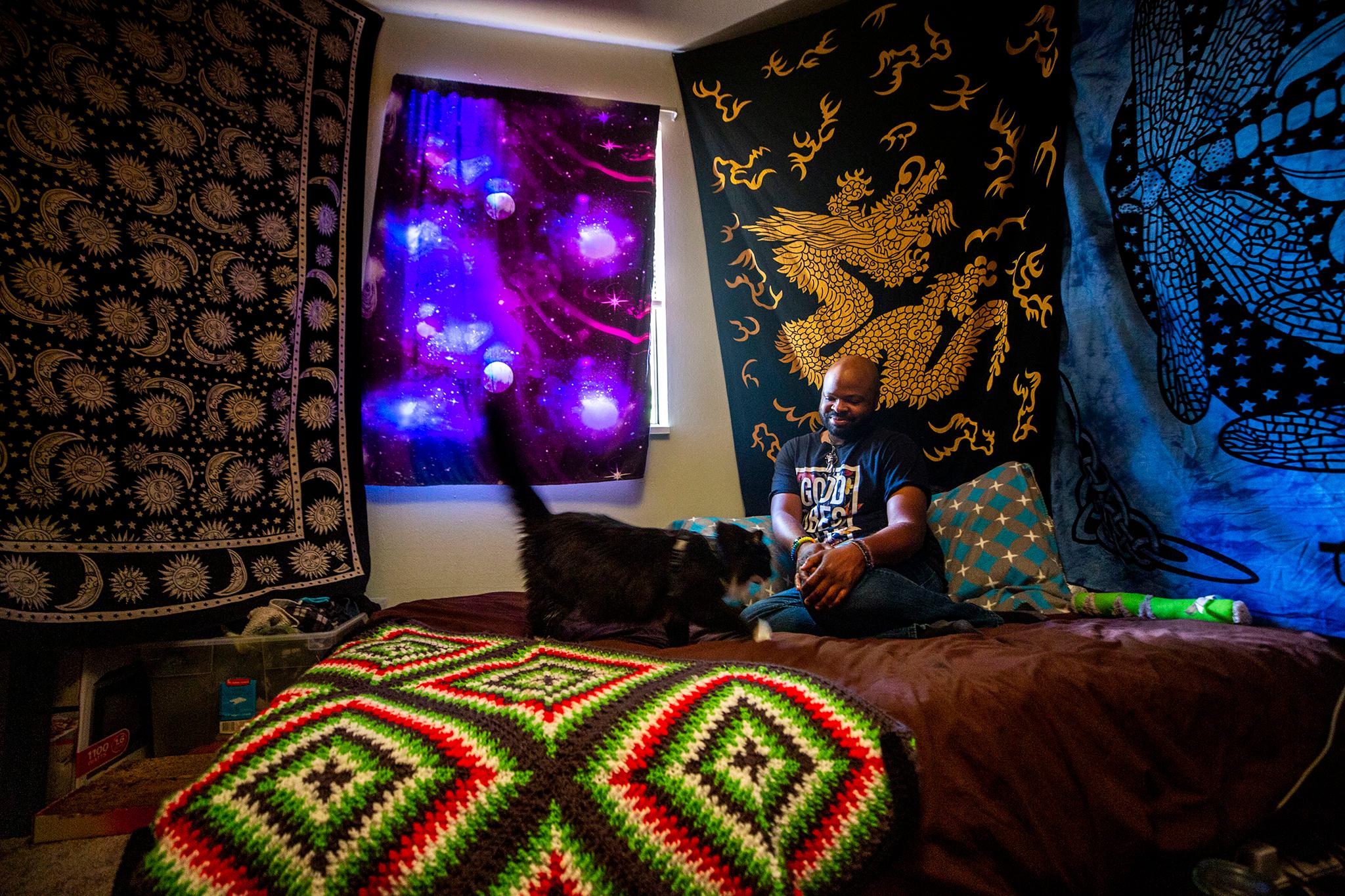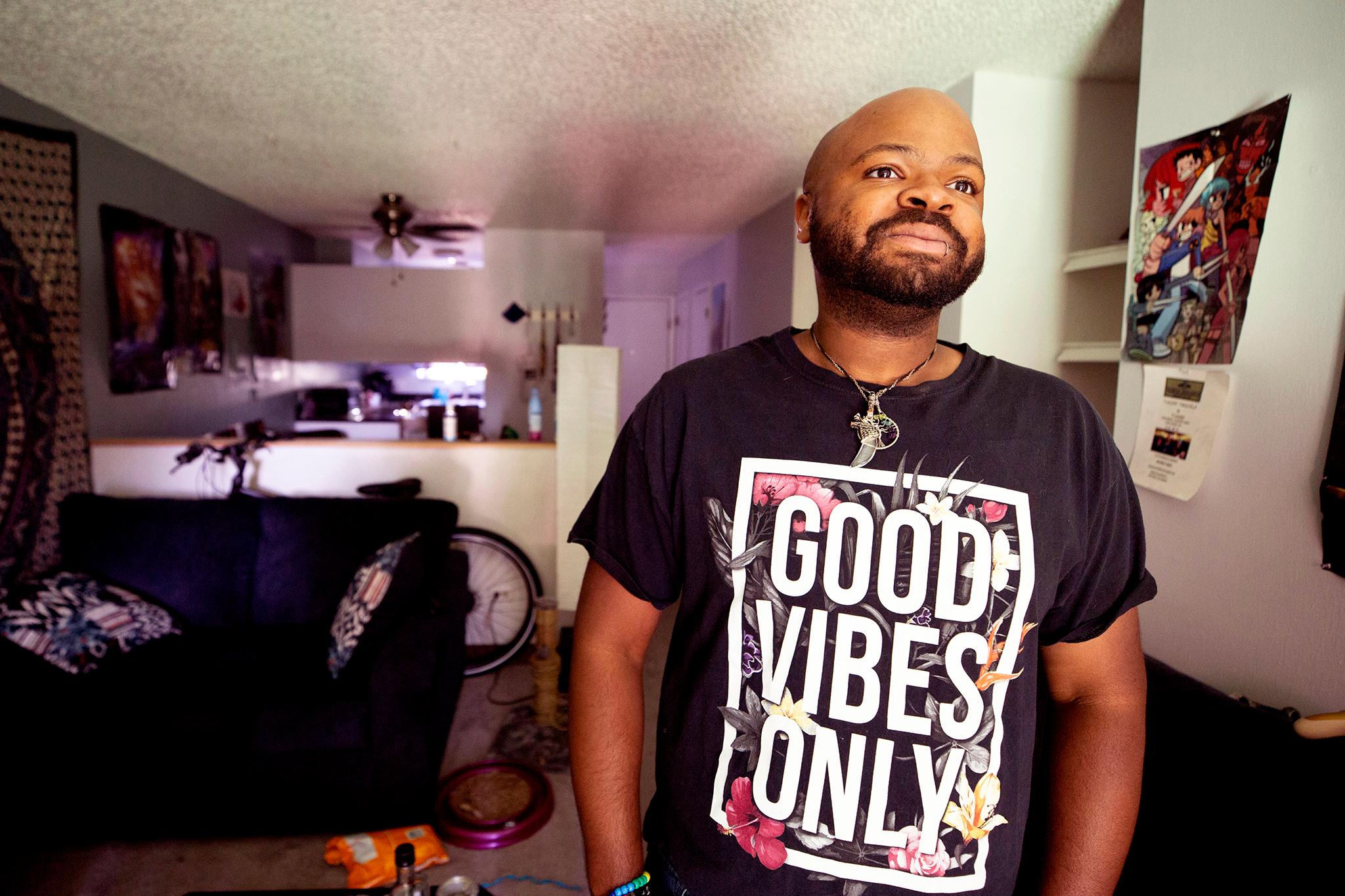In the four years since arriving in Colorado, Bobby Salandy has moved five times.
Once he'd been evicted because he fell behind on his rent last year, landlords saw him as a risk, making it even harder to find stable housing he could afford.
"I didn't realize it was going to be this detrimental," Salandy said of his eviction. "One place didn't even read, didn't even go though my application, because I told them I had an eviction."
Salandy has worked as a budtender and ride-share and delivery driver. He has tried to get a drag career going since settling in the Denver area, his dream home. The Alabama native also became an activist for tenants in Colorado.

After learning about 9to5 Colorado from a lawyer he drove on a ride-share trip, Salandy testified before state lawmakers last year about a proposal that the advocacy group was championing to give tenants 10 days -- instead of the previous three -- to stave off eviction proceedings by resolving a problem such as being behind on rent. That proposal became law. During the pandemic, Gov. Jared Polis extended the period to 30 days for people affected by the coronavirus who faced eviction.
Salandy traces his own payment problems to late fees.
Last year, he was renting an apartment for $924 a month in Aurora. A late charge of $75 was due on the fourth day if the rent was not paid within a certain time frame. Then daily fees of $10 were applied until the rent and all fees were paid. Salandy was also charged $20 in service fees each time he was notified that his rent was late. He kept falling behind, only to have the late fees make it even harder for him to catch up.
His lease also stipulated that if he had left before his lease expired -- perhaps to find a cheaper place -- he would have lost his $600 security deposit and face a "lease break fee" of $1,848.
When his landlord began eviction proceedings last April, it meant more fees, including $295 in "administrative fees and attorneys' fees."
Jason Legg, who often consults with 9to5, is the attorney who met Salandy on a ride-share trip. Legg said many tenants are offered leases similar to Salandy's, and sign them because they see little choice if they want housing. With help from Legg and a colleague, Salandy counter-sued after his landlord went to court to evict him. His countersuit alleges the late fees were "usurious and unconscionable."
Landlords say late fees help ensure tenants pay the rent. Cesiah Guadarrama Trejo, a 9to5 housing organizer, questions their necessity.
"We've always said that eviction is a pretty high stake," Guadarrama Trejo said. "It's a pretty good reason for people to pay rent."
When Polis imposed a statewide eviction moratorium in May, he also banned late fees. When he let his eviction moratorium lapsed last month, Polis allowed landlords to start charging late fees again, but not for the period of May 1 to June 13. It's clear, Guadarrama Trejo said, that "folks understand the impact late fees can have on people."
In 2015, 9to5 surveyed over 1,000 Colorado renters about the challenges of finding housing and then managing to keep it. Many cited high fees. Salandy's experience, Guadarrama Trejo said, was a main reason her organization tried this past session to get lawmakers to consider capping or taking other steps to restrict late fees. The proposal was opposed by landlords and died in committee.
Salandy had hoped the court would delay his eviction until his counter-suit was considered. Instead, a judge granted his landlord's eviction request, effective last August. The counter-suit, to which Salandy hopes other tenants in similar situations could be added, is meanwhile making its way through the legal process.
After his eviction, landlords repeatedly rejected Salandy's applications, even when he showed them a letter from Legg explaining that he hoped to have his eviction overturned.
"I couldn't afford to keep giving out application fees to get rejected," Salandy said.
He had to find roommates who would sign the lease and landlords who would accept a tenant who wasn't on the lease. Salandy calls it the "housing black market."
The past year has had its high points. Salandy started studying criminal justice at Colorado Technical University. He's been keeping fit and working on his drag show.
"I was doing everything this year," he said. "Until Miss Pandemic came along."
There have been times when Salandy has been nervous that driving could expose him to COVID-19.
"So, yeah, my income went down. A lot," he said. "Everyone still wants their rent. No one cares."
He's decided to move back to Alabama, where the cost of living is cheaper. His parents have signed a lease for him on an apartment in his hometown that starts Aug. 18. Soon, Salandy will load his cats and a few belongings into his car and leave Colorado.

He said he can finish his degree online. He also plans to pursue his case against late fees, doing as much as he can by phone and email. He may lobby in Alabama, as he did in Colorado, for changes to help tenants, he said.
"I'm going to miss the snow so much," Salandy said.
Salandy said his time here has been an education. He's even been in Colorado the same number of years it takes to earn a degree.
"But it's done," he said. "Time to go back home and be with family."














